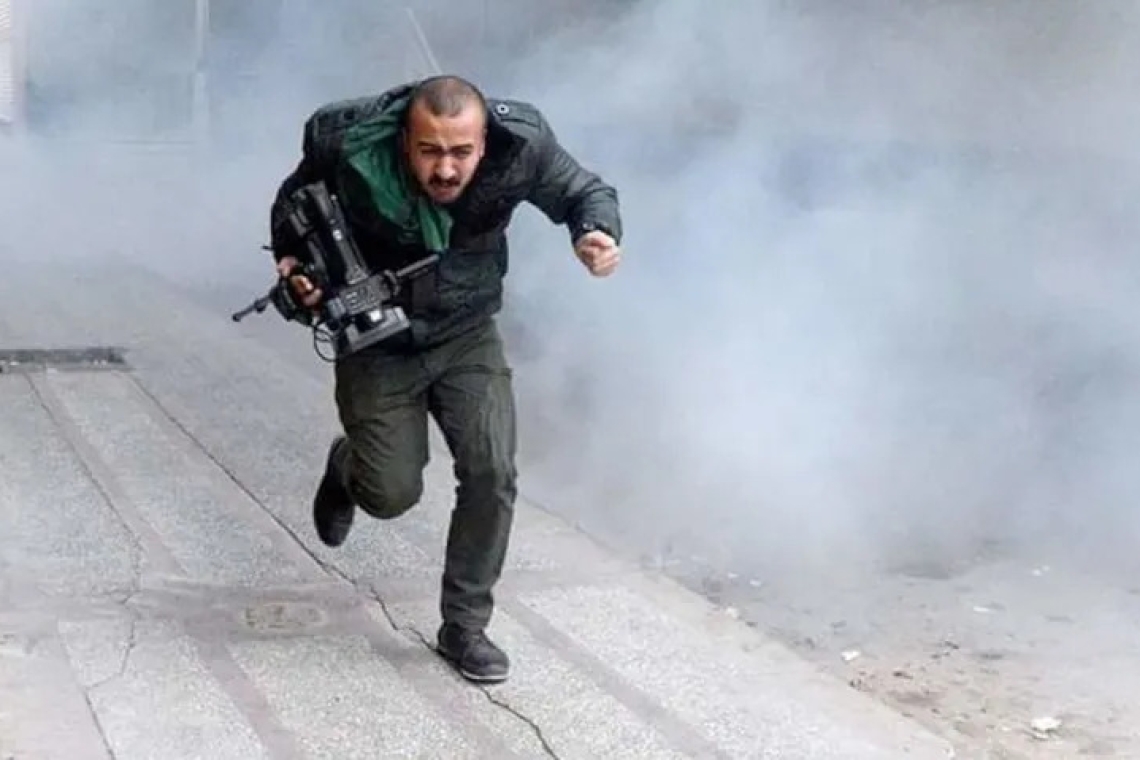DENİZ TEKİN
An appeals court has upheld the life sentence and an additional 12 years and 1 month in prison handed to Rojhat Doğru, a former cameraman for Gelî Kurdistan TV, who was accused of participating in the 2014 Kobane protests in Diyarbakır “with a camera in one hand and a gun in the other.” Doğru’s lawyer has announced plans to appeal the decision to Turkey’s Court of Cassation.
High-profile sentencing in freedom of press cases
The Diyarbakır 8th High Criminal Court sentenced Doğru in January 2022 for “disrupting the unity and territorial integrity of the state,” “membership in a terrorist organization,” and “propagandizing for a terrorist organization.” While the court deferred a 1-year-and-3-month sentence for propaganda charges, it issued an arrest warrant for Doğru, citing his lack of a press card issued by the Presidential Directorate of Communications as part of its justification for the life sentence.
One dissenting judge noted that there was no evidence supporting claims that Doğru could have simultaneously operated his camera and fired a gun, arguing for his acquittal due to insufficient evidence.
Appeals court rules by majority to reject defense
Doğru’s lawyer, Resul Temur, challenged the verdict in the Diyarbakır Regional Court of Appeals, citing procedural and evidentiary flaws. However, the court rejected the appeal, finding the lower court’s judgment to be legally sound despite acknowledging minor procedural shortcomings. One dissenting appeals judge reiterated that there was insufficient, credible evidence for charges such as “attempted murder” and questioned the legal basis for linking the alleged crimes.
Background of the case
Rojhat Doğru gained recognition for his reporting on the Kobane protests, winning a first-place award in 2015 from the Southeastern Journalists Association for his coverage. However, he was later targeted on social media and accused of involvement in violent acts during the protests.
The case against Doğru originated from a complaint by an injured protester, Rıdvan Özdemir, who claimed to have identified Doğru in news footage three days after the protests. Despite a forensic report stating that Doğru’s video footage showed no weapons or harmful objects in his possession, the court convicted him.
Doğru was also briefly detained in 2020 in connection with a separate investigation, accused of “membership in a terrorist organization” after sending money to a friend in prison. This case was later merged with the Diyarbakır trial.
Defense maintains innocence
Doğru denies all charges, arguing that he was targeted for his journalism. His defense pointed to inconsistencies in witness testimony and lack of concrete evidence. One dissenting judge from the appeals court highlighted these issues, stating that the evidence presented did not meet the standard required for a conviction.
Doğru’s case now heads to Turkey’s Court of Cassation, where his legal team hopes to overturn the controversial ruling.



